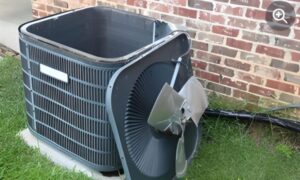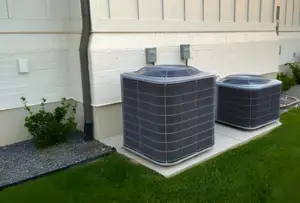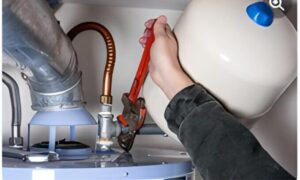As the scorching heat of summer approaches, it is essential to address the condition of your air conditioner. With temperatures rising, the last thing you want is to be left without a functional cooling system.
In this article, we will delve into the pressing question of whether your air conditioner is on its last breath. By evaluating various factors such as repair history, maintenance records, and performance, we aim to provide you with the necessary insights to make an informed decision.
Stay tuned to discover the signs that may indicate the need for a new system and learn how to choose the right one for your specific needs.
Assessing Your Current System
When evaluating the need for a new air conditioner, it is crucial to thoroughly assess the condition of your current system. A comprehensive evaluation will help determine if a replacement is necessary or if repairs can extend the lifespan of the unit.
One important aspect to consider is the repair history of the air conditioner. Check if the technician found low refrigerant levels and if leaks were properly fixed. Understanding the impact of repair history on the unit's lifespan is essential in making an informed decision.
Additionally, assessing the maintenance history of the unit is important. Determine if the unit has been regularly cleaned and tuned up, and provide records of past maintenance to the HVAC professional.
Lastly, evaluate the performance of the current air conditioner, considering factors such as cooling adequacy, humidity control, and temperature fluctuations.
Repair History Evaluation
To determine the need for a new air conditioner, it is essential to thoroughly evaluate the repair history of the unit. This evaluation involves checking if the technician found low refrigerant levels and determining if leaks were fixed or if more refrigerant was simply added. It is important to understand the impact of repair history on the lifespan of the unit and consider whether repairs have been frequent or costly.
Additionally, evaluating if the unit is still functioning efficiently after repairs is crucial. By assessing the repair history, you can gain insights into the overall condition of your air conditioner and make an informed decision about whether it is time to invest in a new system.
Maintenance History Assessment
Assessing the maintenance history of your air conditioner is crucial in determining its overall lifespan and functionality. Regular maintenance plays a significant role in keeping your unit running smoothly and efficiently.
Here are key points to consider when assessing the maintenance history of your air conditioner:
- Regular cleaning and tuning up: Determine if the unit has been regularly cleaned and tuned up. Neglecting these tasks can lead to decreased performance and potential breakdowns.
- Records of past maintenance: Provide records of past maintenance to the HVAC professional. This helps them understand the level of care the unit has received.
Performance Evaluation
The performance of your air conditioner is a crucial factor to consider when evaluating its overall effectiveness and determining if it is time for a new unit.
To assess the performance, you need to evaluate if the air conditioner provides adequate cooling and if there are issues with excessive humidity or temperature fluctuations. Additionally, consider if there are hot and cold spots in your space, as this can indicate poor performance.
It is important to understand that poor performance can indicate the need for a new air conditioner, especially if the unit is no longer meeting your cooling needs effectively.
Choosing the Right System
When selecting a new air conditioning system, it is crucial to consider factors such as the type of space, heating and cooling needs, and available technologies and features.
To ensure that you choose the right system for your needs, follow these guidelines:
- Type of Space:
- Assess the size and layout of the area that needs cooling.
- Consider the number of rooms or zones that require air conditioning.
- Heating and Cooling Needs:
- Determine the desired temperature range for your space.
- Evaluate if you need additional heating capabilities during colder months.
- Available Technologies and Features:
- Research the latest advancements in air conditioning technology.
- Explore features like programmable thermostats, energy efficiency ratings, and air purification systems.
Expert Advice for Decision Making
To make a well-informed decision on choosing the right air conditioning system, seeking expert advice is crucial. HVAC professionals possess the knowledge and experience necessary to guide consumers through the decision-making process.
By consulting with experts, individuals can gain insights into the specific needs of their space, including factors such as system size, design, insulation, and supplemental heating requirements. HVAC professionals can also provide valuable information on the latest technologies and features available in air conditioning systems, ensuring that consumers are aware of all available options.
Moreover, experts can assess the condition of the existing system, evaluating its repair and maintenance history, as well as its current performance. By considering these factors and seeking expert advice, individuals can make informed decisions and select the most suitable air conditioning system for their needs.
Factors to Consider in System Selection
Factors to consider in system selection include the specific cooling needs of the space, the size and design of the area, and the availability of new technologies and features in air conditioning systems.
When evaluating the cooling needs, it is important to determine the required cooling capacity based on the size of the space and the heat load generated by occupants and equipment.
Additionally, considering the design of the area is crucial to ensure proper airflow and distribution of cool air.
The availability of new technologies and features should also be taken into account as they can improve energy efficiency and enhance comfort.
Some key points to consider are:
- Cooling capacity: Assess the heat load and determine the required cooling capacity.
- Airflow and distribution: Consider the layout and design of the space to ensure proper airflow and distribution of cool air.
- Energy efficiency and features: Explore new technologies and features that can improve energy efficiency and enhance comfort.
Frequently Asked Questions
Can a New Air Conditioner Be Installed in the Same Location as My Current One?
Yes, a new air conditioner can typically be installed in the same location as the current one, as long as the space meets the necessary requirements for the new unit and any necessary modifications are made.
How Long Does the Installation of a New Air Conditioner Typically Take?
The installation of a new air conditioner typically takes several hours to a few days, depending on the complexity of the system and any necessary modifications. It is recommended to consult with a professional HVAC technician for a more accurate estimate.
Are There Any Tax Credits or Rebates Available for Purchasing a New Air Conditioner?
There are tax credits and rebates available for purchasing a new air conditioner. It is recommended to consult with a tax professional or visit the official government websites to determine eligibility and requirements.
What Type of Warranty Is Typically Offered for a New Air Conditioner?
Typically, a new air conditioner comes with a manufacturer's warranty that covers parts and labor for a specified period, such as 5-10 years. Extended warranties may also be available for additional coverage.
How Often Should I Schedule Maintenance for My New Air Conditioner?
Regular maintenance for a new air conditioner should be scheduled at least once a year. This helps ensure optimal performance, extends the lifespan of the unit, and prevents breakdowns. Consult with an HVAC professional for specific recommendations.
Conclusion
In conclusion, evaluating the condition, repair history, maintenance history, and performance of your air conditioner is essential in determining whether it is nearing the end of its lifespan. By carefully considering these factors, you can make an informed decision about investing in a new system.
It is crucial to select the most suitable air conditioning system based on factors such as space type, heating and cooling requirements, and available technological advancements. Seeking expert advice can further assist in making the right decision for your cooling needs.








